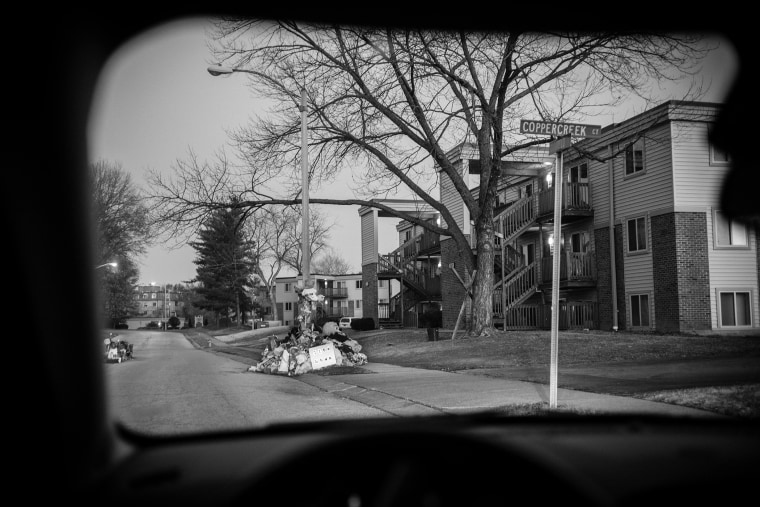A police officer responding to the shooting death of unarmed, black teenager Michael Brown on Aug. 9 in Ferguson, Missouri, requested backup after the incident and warned “there’s going to be a problem,” according to audio files released Monday by the St. Louis County prosecutor’s office.
The same officer who requested additional units at the scene of the shooting asked for help again, saying, “We’re going to need crowd control.” The Brown shooting tipped off weeks of racially charged protests in Ferguson and other cities around the U.S. and sparked a national conversation about race relations and disparate policing of communities of color.
RELATED: New poll shows black distrust in police
The St. Louis County prosecutor’s office, which presented evidence in the Brown case to a grand jury, released a slew of additional documents and audio files two weeks after the panel decided not to indict Ferguson police officer Darren Wilson. Thousands of documents were released on Nov. 24, the day of the grand jury announcement, and St. Louis County Prosecutor Bob McCulloch had previously said he would make public all materials related to the case. But a review of the grand jury documents released last month by NBC station KSDK in St. Louis found that some documents in the case were not released in November.
The prosecutor’s office on Monday released eight witness interviews conducted by federal law enforcement officers, the Justice Department’s autopsy of Brown, audio of the shots fired by Wilson that were recorded during a chat, and other audio files of police transmissions from the day of the shooting.
The grand jury’s decision not to indict Wilson triggered fresh protests in Ferguson, which saw some looting and businesses torched in the immediate aftermath of the announcement. Wilson testified to the grand jury, telling its members that he feared for his life during the confrontation with Brown. Some witnesses said they saw Brown raise his arms in a gesture of surrender when Wilson fired the fatal shots. Wilson stepped down from the Ferguson Police Department days after the grand jury handed down no indictment, citing fear that if he remained on the force it would put other officers in danger.
The unrest in Ferguson and elsewhere following Brown’s death has launched an effort to reform policies related to policing, including a push for law enforcement to wear body cameras and an emphasis on reducing the militarization of police.
RELATED: Will wave of protests bring change?
Earlier Monday, Attorney General Eric Holder announced new bans on racial profiling. “As Attorney General, I have repeatedly made clear that profiling by law enforcement is not only wrong, it is profoundly misguided and ineffective because it wastes precious resources and undermines the public trust,” Holder said in a statement. “Particularly in light of certain recent incidents we’ve seen at the local level, and the widespread concerns about trust in the criminal justice process which so many have raised throughout the nation, it’s imperative that we take every possible action to institute strong and sound policing practices.”
NBC News' Tom Winter contributed to this report.
